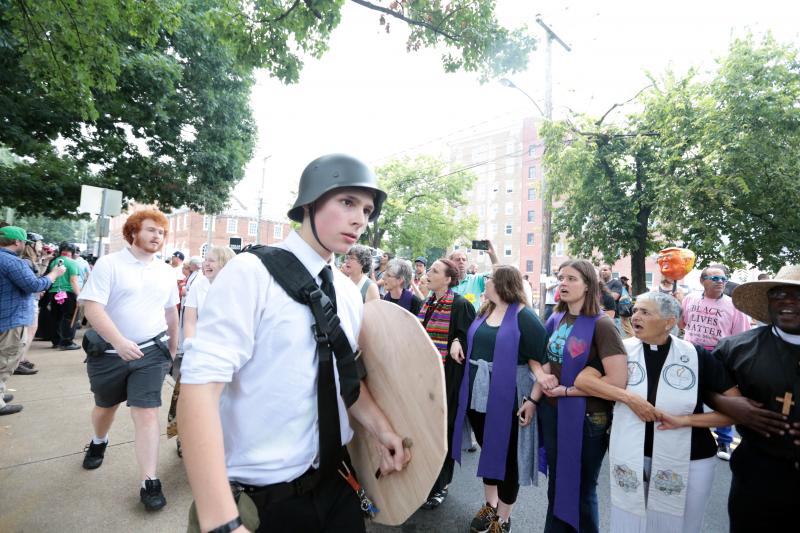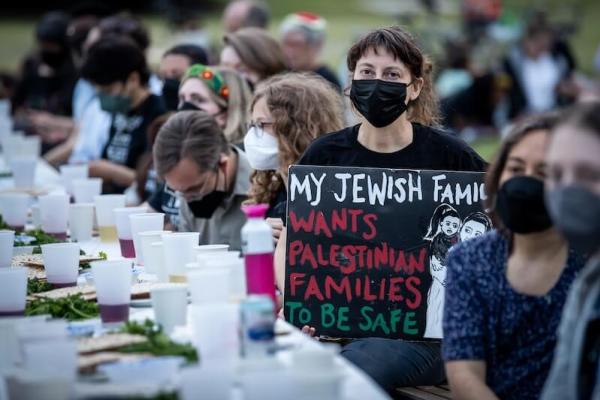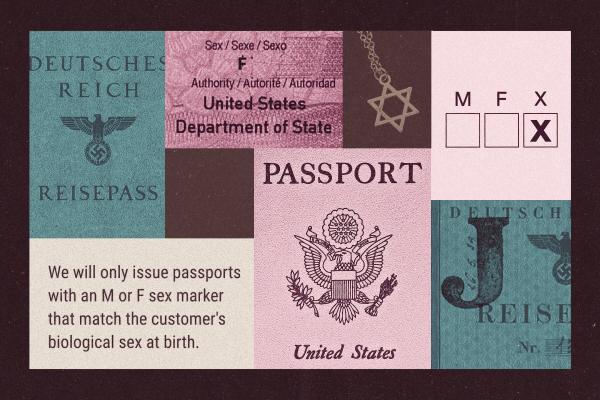Amid great trial and uncertainty, a powerful exchange takes place in the film Selma. As Coretta Scott King struggles to maintain her resolve, Amelia Boynton Robinson offers her encouragement, saying, “I’ll tell you what I know to be true. It helps me when I’m feeling unsure.” After pausing for a moment, Robinson continues with a word of truth: “I know that we are descendants of a mighty people, who gave civilization to the world. People who survived the hulls of slave ships and tortures unimaginable. They are in our bloodstream. Pumping our hearts every second. They’ve prepared you. You are already prepared.”
In the testing of her courage and resilience, Coretta King questions her ability to rise to the task at hand. Beyond this surface of doubt, Robinson sees her friend and reminds her who she is. I am moved by this scene each time I view it. Also, as a white person, it shakes me to my core. The truth Robinson offers is intimately connected to the conflict erupting in the U.S. and has profound implications for the heritage and identity flowing through our country.
On Friday, I traveled to Charlottesville, Va., to bear witness. What I saw there deeply unsettled me. White supremacists, gathered for a rally at a statue of Confederate General Robert E. Lee, boldly manifested the evil legacy of America’s original sin. Unfolding in streets throughout the city, the heritage of whiteness was revealed in full display.
Perhaps most disturbing was the unashamed nature of this hate-filled display: In 2017, white supremacists wear no hoods.
They carried flaming torches, proudly flaunted Confederate and swastika-emblazoned regalia, and chanted “Jew will not replace us,” “Sieg Heil,” and“blood and soil” — and there was simply no need for secrecy. Former KKK leader David Duke said the rally represented the “fulfillment of Donald Trump’s promise,” and several demonstrators wore “Make America Great Again” hats — leaving no question that white supremacy is far from fringe, but is deeply rooted in the identity of the yet-to-be United States. Donald Trump’s rise to power was established on a bedrock of strategic racialization, and his less-than-subtle coded language has galvanized a base of white nationalism that had always been there, even if disregarded.
Those claiming that “this is not who we are” are woefully misguided. For hundreds of years, the lie of human hierarchy has been constructed and upheld by white people. Sadly, in this regard, white supremacists appear more attuned to the biases of our national history than well-intentioned anti-racists. We cannot afford to deny the power and principalities interwoven throughout our story; it is imperative that white people understand that the construct of whiteness is a disease. In baring the brutalizing effects of whiteness, people of color are all too familiar with the reality that the overwhelming majority of domestic terrorism is committed by white men: the Oklahoma City bombing, the massacre at Emmanuel AME, the stabbing attack on a Portland train earlier this spring, and the Charlottesville car ramming that injured 19 counter-protestors and murdered Heather Heyer. That white men have the highest suicide rate, accounting for 7 of 10 suicides in 2015, provides further symptoms of this sickness. Addiction to amassing and protecting power at any cost is a deadly condition. The lie of whiteness must be confessed and avowed because, in the words of Lilla Watson, our collectively bound liberation is at stake.
Charlottesville is an expression of the longest-standing American tradition: to serve and protect the interests of white people, in whichever way whiteness is currently defined. It is unclear why local and state police maintained a laissez faire approach to violent confrontations between Nazi demonstrators and anti-fascist counter-protestors, but comparisons to the militarized police response to unarmed black protesters in Ferguson, Mo., and elsewhere should not be overlooked. In upholding a contract of social mores, whether openly stated, the police function as an extension of public will, enforcing that which we prefer to turn a blind eye toward. White nationalists are merely a further extension of this agreement. While I have little doubt that many white people are repulsed by this blatant display of violence, I am less certain how many prefer the existing arrangement – which necessitates this barbarity – to one that requires a loss of privilege.
rw0a0373.jpg

Wearing helmets, carrying shields, and brandishing flag poles and pepper spray, the waves of demonstrators that streamed into Emancipation Park, formerly named Lee Park, joined the front line in the struggle to maintain white supremacy. This struggle was waged not just for those seeking to create a white ethno-state, but on behalf of all institutions and people benefitting from whiteness – which includes the ethics, policies, and theologies that reinforce a lie of superiority and suppress the inherent image of God throughout all of humanity. Many surprised observations have been made that the demonstrators were students and professionals, largely undifferentiated from the hypothetical young white man living next door, or sitting in a pew on Sunday morning. The desire to project the problem of white supremacy unto the recesses of society is simply too convenient. The same air these angry extremists are breathing also exists in my lungs.
The psyche of our nation has been largely disturbed by the profound ugliness championed in the “beloved and besieged” city of Charlottesville. Yet, in its midst, the gospel of Christ was boldly proclaimed. A group of clergy and faith leaders convened by Congregate Charlottesville counted the cost and willingly entered conflict with a presence of deep abiding love. What unfolded was dramatic in its opposition. As several hundred residents and those who traveled to answer the call for support packed out St. Paul Memorial Episcopal Church for an interfaith service, several hundred torch-wielding demonstrators gathered across the street on the University of Virginia campus, evoking the hovering legacy of the Ku Klux Klan. Demonstrators violently clashed with university students standing in opposition to racism, while those departing the church were told to hunker in place because the situation outside had become too volatile.
Saturday morning the group marched silently through the city, wearing stoles and clergy collars, processing from a sunrise prayer and commissioning service at First Baptist Church to stand face to face with white supremacists and paramilitary armed with assault rifles. As insults and threats were hurled at them, these ministers knelt on the curb along the edge of Emancipation Park and offered prayer and song. Rarely have I understood the gospel more clearly than in witnessing an eruption of “This little light of mine, I’m gonna let it shine” cutting through an angry shouting match. As the clergy chanted, “Love has, love has, love has already won,” the story so desperately needed was told in full.
So, what is the way forward for the church? In the Gospel of Mark, Jesus provides an apt call, which can be summarized in this way: The way of whiteness has no place in the Kingdom of God; forsake it and live.
Mark 8:31-38 tells of a confused Peter, blinded by a narrative of power and domination, boldly rebuking the counterintuitive way of Christ. Foreseeing the inevitable death and destruction in Peter’s path, Jesus firmly says, “Get behind me, Satan! For you are setting your mind not on divine things but on human things.” Far too much is at stake for Jesus to timidly redirect this disciple, later to lead the church. Jesus continues, “If any want to become my followers, let them deny themselves and take up their cross and follow me. For those who want to save their life will lose it, and those who lose their life for my sake, and for the sake of the gospel, will save it. For what will it profit them to gain the whole world and forfeit their life?”
Amassing power and privilege through violent oppression is a slow erosion of the soul. The vitriol exhibited in Charlottesville should make this clear. Those clinging to whiteness to falsely reinforce superiority are subjected to such a significant degree of moral injury it becomes impossible to be in community with anyone. What does it profit those gaining privilege if it causes them to relinquish their very soul? What does this mean for those with centuries of privilege obtained by oppression running through their bloodstream?
Here’s the good news: Salvation awaits those who renounce the way of whiteness. While every skin tone bears the image of God, the system of racial division and hierarchy is a human construction. For the church to effectively respond to Charlottesville, clergy, faith leaders, and all people of faith must critically examine how they have consumed and believed the lie of white supremacy; repent for complicity by exorcising our institutions, theologies, and liturgies of this sickness; provide healing to mind, body, and spirit for the trauma and moral injury caused by white supremacy; and finally, mobilize to protect and defend those marginalized by violent rhetoric and action.
When the bodies of marginalized people are no longer in danger and the soul of the privileged is repaired, Beloved Community is possible.
Got something to say about what you're reading? We value your feedback!







